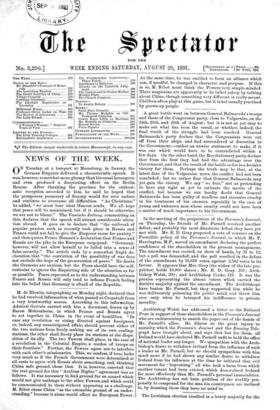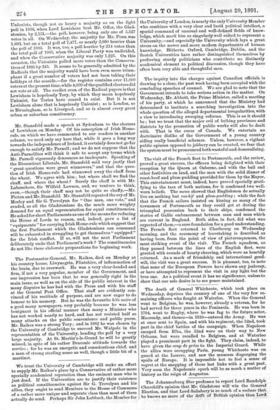The Lewisham election resulted in a heavy majority for the
Unionists, though not so heavy a majority as on the light poll in 1886, when Lord Lewisham beat Mr. Offor, the Glad- stonian, by 2,151,—the poll, however, being only one of 5,527 votes in all. On Wednesday, the majority for Mr.. Penn was 1,693, but on a total poll of 7,477, or nearly 2,000 heavier than the poll of 1886. It was, too, a poll heavier by 214 votes than the total poll of 1885, when the Liberal Party was undivided, and when the Conservative majority was only 1,225. On this occasion, the Unionists polled more votes than the Conserva- tives of 1885 by 345. It seems to be generally admitted by the Radicals that the majority would have been even more trium- phant if a great number of voters had not been taking their holidays at the seaside,—for the register contains over 11,000 voters at the present time, while 4,000 of the qualified electors did not vote at all. The verdict even of the Radical papers is that Lewisham is hopelessly Tory, by which they mean hopelessly Unionist, for Tories have ceased to exist. But it is not Lewisham alone that is hopelessly Unionist ; so is London, so is Birmingham, so is Liverpool, and so is almost every great urban or suburban constituency.



































 Previous page
Previous page